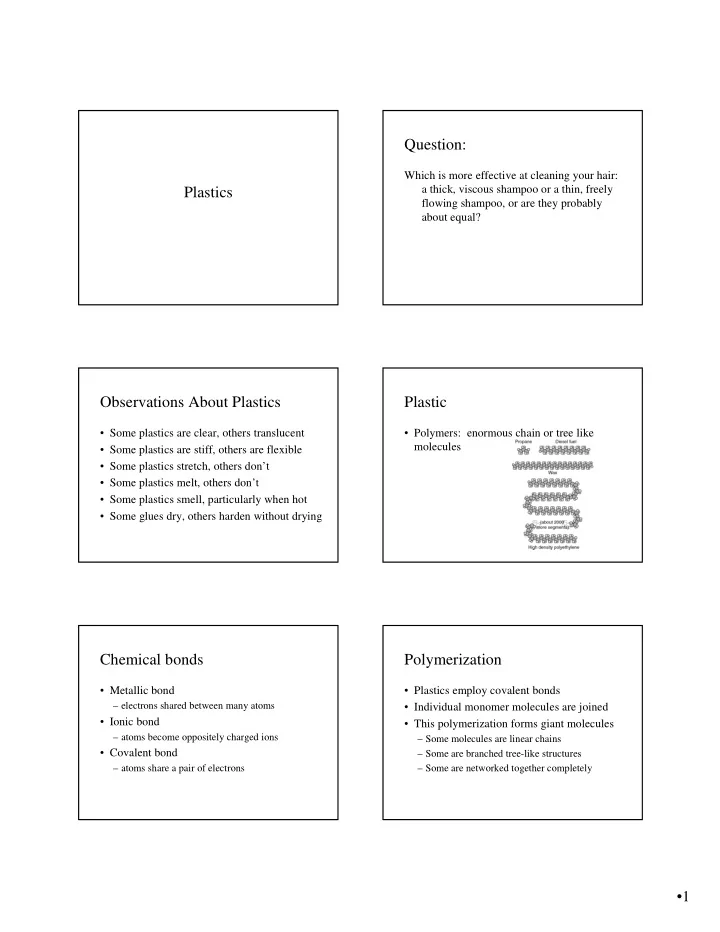

Question: Which is more effective at cleaning your hair: a thick, viscous shampoo or a thin, freely Plastics flowing shampoo, or are they probably about equal? Observations About Plastics Plastic • Some plastics are clear, others translucent • Polymers: enormous chain or tree like molecules • Some plastics are stiff, others are flexible • Some plastics stretch, others don’t • Some plastics melt, others don’t • Some plastics smell, particularly when hot • Some glues dry, others harden without drying Chemical bonds Polymerization • Metallic bond • Plastics employ covalent bonds – electrons shared between many atoms • Individual monomer molecules are joined • Ionic bond • This polymerization forms giant molecules – atoms become oppositely charged ions – Some molecules are linear chains • Covalent bond – Some are branched tree-like structures – atoms share a pair of electrons – Some are networked together completely •1
Plastic structure Regimes • Amorphous • Glassy: hard, brittle solid – random mess of polymers • Glass-rubber transition: leathery • Crystalline • Rubbery plateau: flexible and elastic – neatly oriented polymers • Rubbery flow: viscous flow but elastic – Reptation: chains slide along their length • Liquid flow: viscous liquid Changing regimes Question: • Temperature Which is more effective at cleaning your hair: a thick, viscous shampoo or a thin, freely • Plasticizers flowing shampoo, or are they probably – Chemical dissolved in a polymer to soften it about equal? – Shift a polymer’s behavior to a different regime Thermoplastics Thermosets • Individual strands • Polymers are cross-linked • Change behavioral regimes when heated • Can’t melt • Vulcanization: cross-linking of a thermoplastic •2
Glues are Plastics Oriented Plastics • White Glue (Water-Soluble Plastic) • Kevlar (Liquid Crystal Plastics) • Model Cement (Solvent-Soluble Plastic) • Spectra (Draw-Ordered Plastics) • Heat Melting Glue (Glue Gun Glue) • UV-Hardening Acrylic Glues (Acrylates) • Superglues (Cyanoacrylates) • Mix-Hardening Glues (Epoxies) •3
Recommend
More recommend